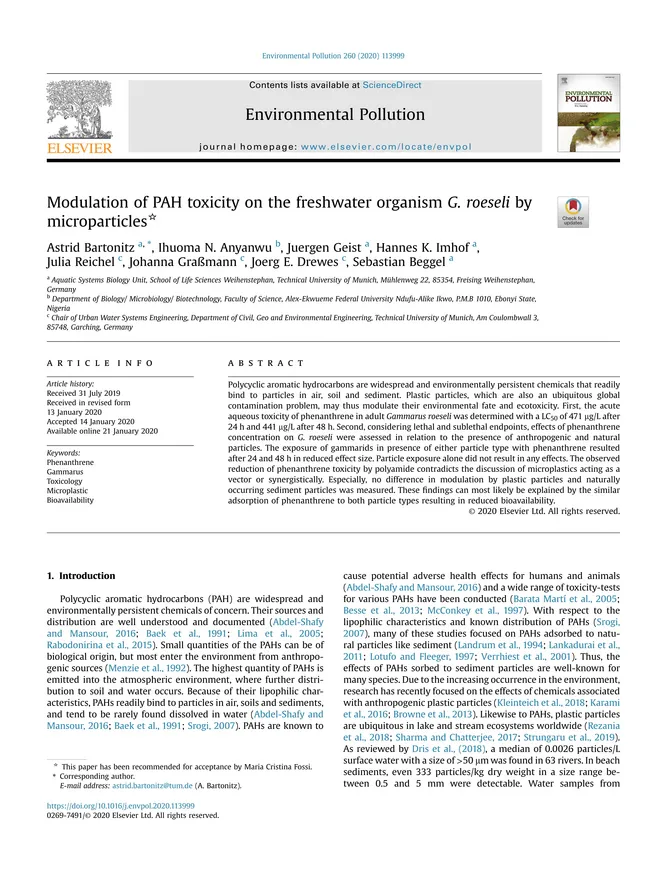Polycyclic aromatic hydrocarbons are widespread and environmentally persistent chemicals that readily bind to particles in air, soil and sediment. Plastic particles, which are also an ubiquitous global contamination problem, may thus modulate their environmental fate and ecotoxicity. First, the acute aqueous toxicity of phenanthrene in adult Gammarus roeseli was determined with a LC50 of 471 mg/L after 24 h and 441 mg/L after 48 h. Second, considering lethal and sublethal endpoints, effects of phenanthrene concentration on G. roeseli were assessed in relation to the presence of anthropogenic and natural particles. The exposure of gammarids in presence of either particle type with phenanthrene resulted after 24 and 48 h in reduced effect size. Particle exposure alone did not result in any effects. The observed reduction of phenanthrene toxicity by polyamide contradicts the discussion of microplastics acting as a vector or synergistically. Especially, no difference in modulation by plastic particles and naturally occurring sediment particles was measured. These findings can most likely be explained by the similar adsorption of phenanthrene to both particle types resulting in reduced bioavailability.
Bartonitz et al. 2020
Neuer Zeitschriftenbeitrag von Bartonitz et al. 2020
